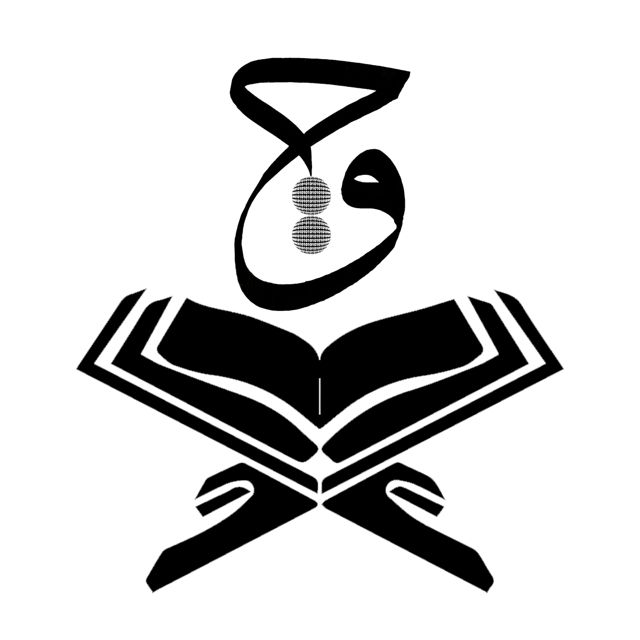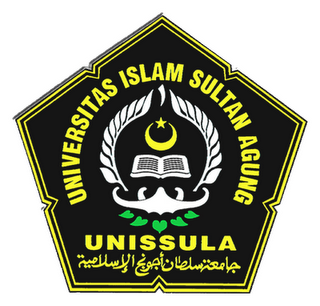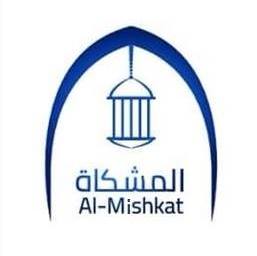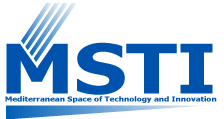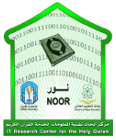11th International Conference on Islamic Applications in Computer Science and Technologies
(IMAN 2023)
2 – 3 December 2023
Online

Keynote Speakers
Keynote Speaker 1
Prof. Dr. Ahmad Khaled Yousef Shukri
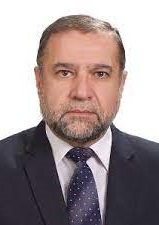
Phenomena of recitations and their implications in the recitations of the majority ten reciters
This talk is a research aims to spot the phenomena of the majority of
reciters after collecting and categorising them, to contemplate and
study them, and to extract implications out of them.
The reason for conducting this research is to find the most prominent
phenomena in the recitations of the majority ten reciters, and to find
the implications of those phenomena.
This research has used the inductive, analytical, descriptive, and
comparative methods.
Some of the main findings include: the majority reciters assent with
the most eloquent form of the language, the presence of the ten
reciters in comparable ratios in the majority reciters, and the most
frequently present is the Imam Abu Amr Al-Basree.
Biography:
Prof. Dr. Ahmed Khaled Shoukri holds a Ph.D. from the Islamic
University of Medina. He currently works at Qatar University in
addition to his permanent work at the University of Jordan since 1991.
He is specialized in interpretation, Qur’anic sciences and readings.
He held a number of administrative positions at the University of
Jordan, such as Head of the Fundamentals of Religion Department,
Assistant Dean, Director of the Islamic Cultural Center. He has
published 83 books and researches, including: Al-Mueesar in the
Science of Verses, Ethics of the People of the Qur’an with the Qur’an
and its People, the Numerical Miracle as a Critical Study, and the
Reasons for the Existence of Abnormal Recitations.
Keynote Speaker 2
Prof. Dr. Salwa Elsayed Hamada
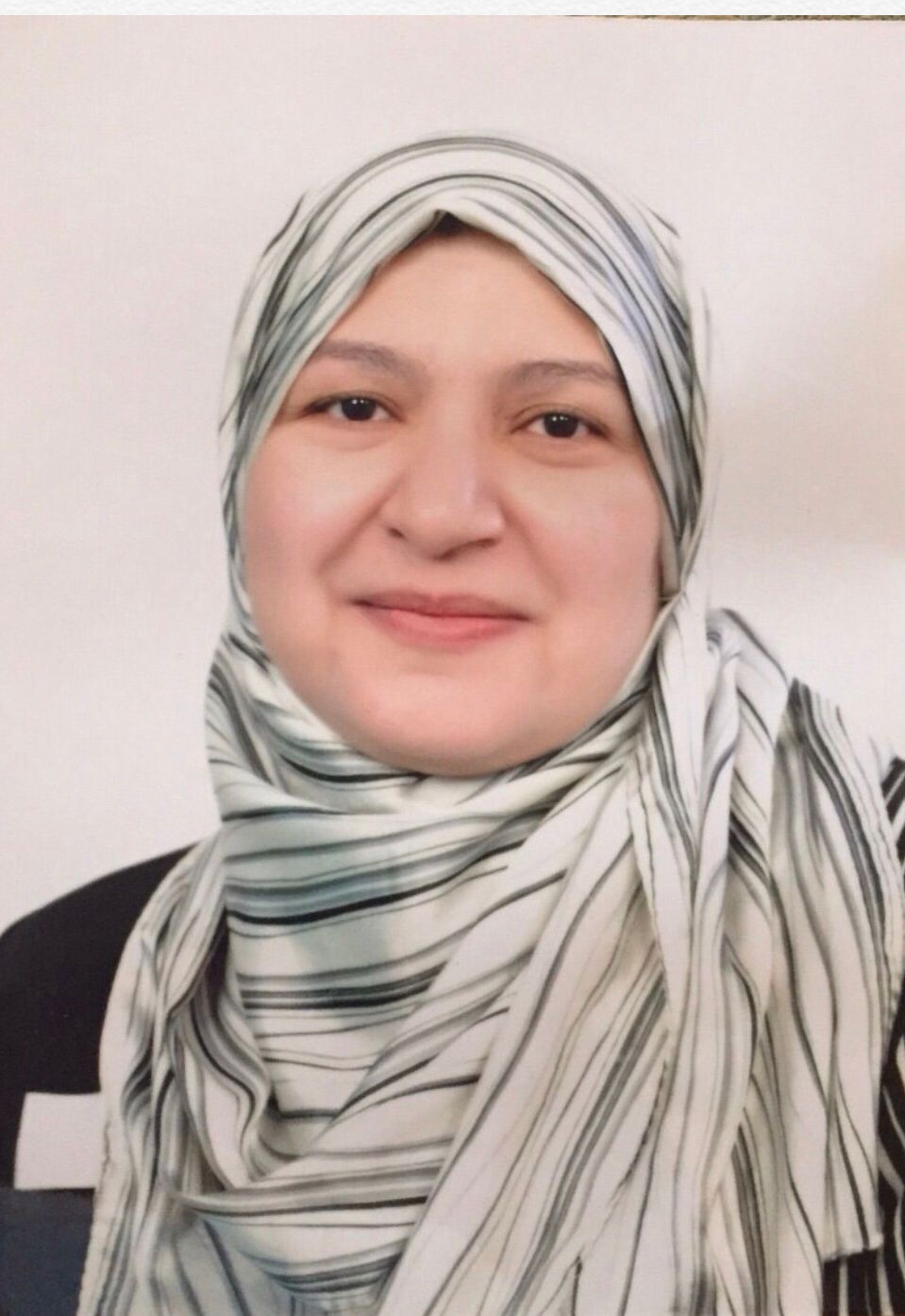
Generative artificial intelligence: applications in the Arabic language
Generative artificial intelligence is one of the most prominent
branches of artificial intelligence at the present time, and is used
to automatically generate new content such as texts, images, and
video. Generative artificial intelligence has contributed to
significant development in areas such as: machine translation and
content creation. The technology of generating Arabic stories with
artificial intelligence contributes to preserving and developing
cultural heritage using modern technology. This technology is
considered an interesting field and has a promising future in the Arab
world. Artificial intelligence has developed a lot and is able to
process natural language and understand it well. With some artificial
intelligence tools such as ChatGPT, we can formulate phrases and
sentences that look like human writing. It is still too early for
valuable books written using artificial intelligence technology to
appear, but the field is developing rapidly. As technology continues
to improve, it is expected that we will see many high-quality stories
and books written by artificial intelligence. In order to develop this
field, more research and studies must be conducted and the scope of
the study must be expanded to include other languages and other
stories that contain a rich cultural heritage.
This research aims to explain the concept of generative artificial
intelligence and its use in generating Arabic stories, its purpose,
and clarify the methods used in this field. It gives examples of how
to generate the Arabic story and the linguistic models used in doing
so. I presented previous research ideas, mentioned the challenges
facing the obstetrics process, and pointed out the features of future
work in this field.
Biography:
Professor Dr. Salwa Hamadeh obtained her bachelor’s degree from Ain
Shams Engineering, her master’s degree in computer adaptation to serve
the Arabic language, and her doctorate in an intelligent system for
understanding Arabic texts and interacting with them (the first Arabic
chatbot) from Ain Shams Engineering. She worked as an assistant
professor in computers at Taibah University in Medina, and as an
associate professor in girls’ colleges in Mecca. She supervised a
number of doctoral and master’s research in the field of artificial
intelligence and language computing. She works at the Nozha
Electronics Research Institute, Cairo, Egypt. She also works as a
consultant for Reed Firth to teach the Holy Quran in America. She won
several titles and awards, such as the title of Ambassador of Arab
Culture, the award for the best Arab information researcher in the
field of “computing the Arabic language and the text of the Holy
Qur’an,” the title of Mother of Arabic Computational Linguistics, the
Award and Shield of Distinction from the Language Engineering Society,
and some other shields and awards. She was chosen from among one
hundred individuals who served the Arabic language by the
International Center for Teaching Arabic to Speakers of Other
Languages eTurn. She has presented research papers in several journals
and conferences in the field. The professor has various newspaper
articles and has published more than 80 scientific research and
articles. She is the author of a series of books in the field of
automated language processing, in addition to reference books for
universities in Egypt, Saudi Arabia, and Algeria for the postgraduate
level.
Keynote Speaker 3
Prof. Dr. Ahmed Sharaf Eldin Ahmed
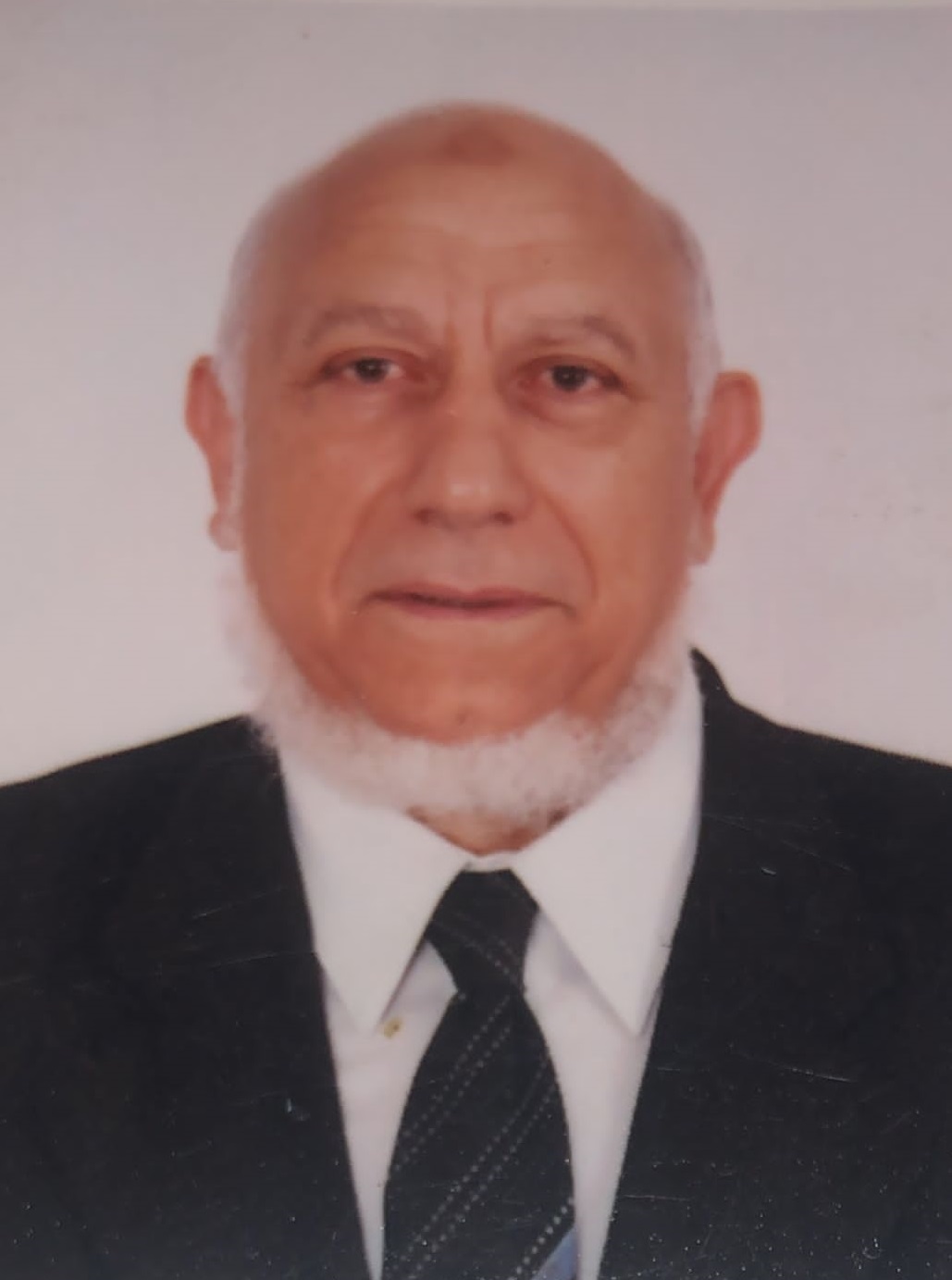
Pitfalls in the computerization projects of the Holy Qur’an
With the tremendous growth of computers’ capabilities, many system
developers have turned to making applications in forensic sciences,
especially the Holy Qur’an. Since many of these people focus on
presenting the developed application in a good and acceptable way to
the end user, they may miss some other important issues that an
ordinary user does not pay attention to.
This research discusses some fundamental issues that should be
considered when developing these systems.
The researcher divides these caveats into two main parts: the
religious part and the technical part
The research paper simplifies the most important caveats in this
regard, providing some examples and proposing some appropriate
solutions.
Biography:
Prof. Dr. Ahmed Sharaf Eldin Ahmed graduated from the Faculty of
Engineering, at Cairo University in 1966. He began studying computers
in 1968, which led to him obtaining a doctorate in computer science
from Loughborough University in England. His graduate study path
included a variety of fields at the diploma and master’s levels in
addition to computers. These fields are Islamic studies, engineering,
statistics, operations research, management, and Islamic archeology.
Dr. Ahmed is considered as one of the first generation of computing
professionals in Egypt.
He currently holds the position of Dean of the Faculty of Information
Technology and Computer Science at Sinai University in Egypt, seconded
from Helwan University. Before that, he was at King Saud University in
Riyadh, Saudi Arabia where he contributed to establishing the first
specialized college in the Arab world in the field of computers in the
eighties of the last century.
He has many publications in the field of computers, including books,
scientific papers, and supervision of master’s and doctoral
dissertations, some of which are related to the computerizing of
Islamic sciences. He is also a member of the Supreme Council of
Al-Ashraf’s Syndicate in Egypt, the Egyptian Society of Engineers, as
well as the IEEE Society, the ACM Society, the AIS Society, and
others.
He obtained the Holy Qur’an recitation certificate for his ten
readings a long time ago. He recited and taught Quran recitation a
long time ago and has students in several countries in addition to
Egypt. He is also currently the Sheikh of one of the recitation rounds
in Egypt.
Keynote Speaker 4
Prof. Dr. Othman Omran Khalifa
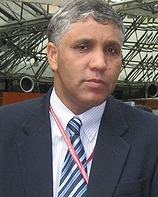
Promises and Implications of AI in Teaching and Learning
A revolutionary era in education has begun with the incorporation of
Artificial Intelligence (AI) into teaching and learning. This
integration offers a multitude of advantages and distinct challenges
for educators, students, and educational institutions. AI technologies
provide tailored educational experiences that adjust to the unique
requirements and learning preferences of each student. In a way that
traditional teaching approaches frequently find difficult to
accomplish, this customization of information and pace has the
potential to improve comprehension and retention.
Additionally, AI in education makes it easier to automate
administrative duties, freeing up teachers to concentrate more on the
engaging and interactive parts of teaching. Teachers may then take on
the role of facilitators, helping students with collaborative
projects, critical thinking, and problem-solving instead of just
information delivery. Automating repetitive operations can increase
productivity and expedite educational processes, which can lessen the
administrative load on educational institutions.
However, the widespread implementation of AI in education is not
without its challenges and implications. Concerns related to data
privacy, algorithmic biases, and the ethical use of AI in
decision-making processes must be carefully addressed to ensure a fair
and inclusive learning environment. Additionally, there is a need for
adequate training and professional development for educators to
harness the full potential of AI tools effectively. The integration of
AI in education also raises questions about the future employability
of teachers in a landscape where technology assumes a more prominent
role in the learning process.
Biography:
Prof. Dr. Othman Omran Khalifa received his bachelor’s degree in
electrical and Electronic Engineering from Garyounis University, Libya
in 1986. He obtained his Master’s degree and PhD from Newcastle
University, UK in 1996 and 2000 respectively. He worked in industries
for eight years and he is currently a professor at the department of
Electrical and Computer Engineering, International Islamic University
Malaysia. Prof. Khalifa served as the head of department of Electrical
and computer Engineering, IIUM from July 2005 until December 2014. He
is a Charter Engineer (CEng) UK, a Senior member of IEEE USA, and a
member IET UK. Prof. Khalifa was the chairman of the International
Conference on Computer and Communication Engineering (ICCCE), 2006,
2010, 2012, 2014. Prof. Khalifa supervised more than 60 Masters and
PhD students. He has extensively contributed through his writings in
international journals, conferences and books. He published more than
500 publications including 12 books. In 2013, he received the highest
citation in Citation Indexed Journal Award, in 2019 he got the TOKOH
academic “Best Academician” award and last year in 2020, he Won the
Murabbi “Best Teacher” award. In 2021, he got the publication (book
publication) award. In 2022 won the National Best Book in Science and
technology 2022.
Keynote Speaker 5
Dr. Waleed Kadous
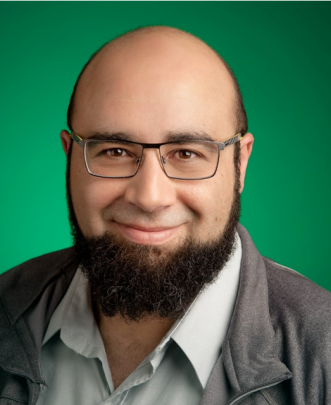
Ansari: Experience with a real Islamic LLM
Ansari (ansari.chat) is an Islamic chatbot that uses carefully constructed system prompts plus retrieval augmented generation (e.g. Qur'an) to provide answers that people have. It has handled more than 5,000 queries from users, and gets upwards of 80 questions from users a day. It builds on GPT-4. We've found it to produce high quality answers. We walk through some of the capabilities of Ansari, show how they are built and raise some religious and worldly questions about how Ansari can and should be used.
Biography:
Dr. Waleed Kadous is Chief Scientist at Anyscale, the company behind
the popular open source distributed computing platform Ray. He leads
the company’s LLM efforts. Prior to Anyscale, Waleed worked at Uber,
where he led overall system architecture, evangelized machine
learning, and led the Location and Maps teams. He previously worked at
Google, where he founded the Android Location and Sensing team,
responsible for the “blue dot” as well as ML algorithms underlying
products like Google Fit. He also holds more than 40 patents.
Keynote Speaker 6
Prof. Dr. Eric Atwell
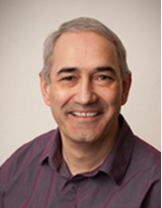
Biography:
Prof. Eric Atwell is a Professor of Artificial Intelligence for
Language at the School of Computing, University of Leeds. He has a
long track record of natural language processing research going back
more than 40 years. His areas of expertise include AI, Language
Computing, Linguistics, Machine Learning, Data Mining, Natural
Language Processing, Text Analytics, and more.
He also works part-time at LITE Leeds Institute for Teaching
Excellence as a LITE Fellow, where he conducts research in AI for
Decolonizing Reading Lists. In addition, he is a Turing Fellow at the
Alan Turing Institute for Data Science and Artificial Intelligence and
a member of LIDA Leeds Institute for Data Analytics and LATL (Language
At Leeds).
Professor Atwell leads the AI4L Artificial Intelligence for Language
research group at the University of Leeds. He teaches Artificial
Intelligence, Data Mining and Text Analytics to students in several
degree programs.
